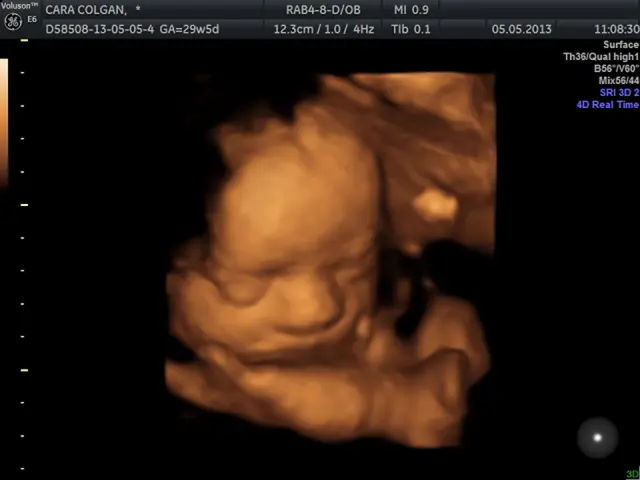Extraterrestrial Origins Suggested for Earth's First Life Forms
Earth's Early Origins and the Role of Asteroids in Life's Emergence
The initial stages of life on Earth took shape approximately 4.6 billion years ago, after the planet's formation during the Hadean eon. Initially, the Earth was a hostile, toxic environment, persisting as a fireball for around 6 million years. However, within the Hadean eon, a significant event known as the heavy bombardment stage unfolded, with the Earth being pummeled by various celestial debris, including asteroids. Although life would not emerge until the subsequent Archean eon, the heavy bombardment stage may have played a crucial role in setting the stage for life's eventual rise on Earth.
Recent research by the United States into asteroid sampling offers an intriguing possibility: asteroids could have been the vessels that delivered essential building blocks for life on Earth. Preliminary findings from the asteroid Bennu reveal characteristics that indicate the presence of ideal conditions for the emergence of life within the solar system before it appeared on Earth. These findings suggest that asteroids not only could have contributed some of the fundamental components required for life's emergence here but also raise the probability that life could have come into being on other planets and satellites in our solar system.
Bennu, in particular, has shown signs that support this hypothesis. It has a carbon-rich composition, containing organic compounds like amino acids, which are essential constituents for life, as well as other components necessary for the formation of organic matter. Analyses of Bennu samples have indicated the presence of carbon and structures that suggest hydrothermal activity and aqueous alteration, both of which are favorable for organic matter creation [1][4][5].
The content of water on asteroids is another striking feature. Many asteroids were moist environments that harbored water in various forms, and this water, combined with carbon-based materials, can facilitate chemical reactions that yield complex organics. The detection of water-bearing minerals and evidence of past water on asteroids, such as Bennu, strengthen the argument that these celestial bodies may have provided both the water and the organics necessary for life to develop [1][5].
Organic compounds and prebiotic molecules have also been found in meteorites derived from asteroids. Traces of amino acids, nucleic acid bases (such as adenine and guanine), and even sugars like ribose have been discovered, implying that asteroids serve as natural chemical laboratories for producing the fundamental building blocks of life [4].
Direct evidence of the presence of such complex organic materials in asteroids can be found in meteorites discovered on Earth from asteroids impact. This, in turn, bolsters the theory of panspermia—the concept that life's precursors or even life itself could have been planted on Earth via extraterrestrial objects [4][5].
Lastly, the mineralogical diversity of asteroids is a significant aspect. They display a wide array of minerals and chemistries, including clay minerals and salts that form in the presence of water. These minerals can function as catalysts or substrates for chemical reactions that result in the production of more complex organics [1][5].
In conclusion, the combination of carbon, water, and a diverse assortment of organic and mineral materials found in asteroids provides compelling evidence that they could have provided the raw materials required for life's origin on Earth [1][4][5]. This research underscores the fascinating possibility that the development of life on other planets and satellites in our solar system could also be attributed to the influence of asteroids.
Science suggests that asteroids could have been the vehicles delivering essential building blocks for life on Earth, as evidenced by recent findings in environmental science and space-and-astronomy research. These discoveries indicate that asteroids like Bennu have characteristics suitable for the emergence of life, such as carbon-rich compositions, water, organic compounds, and minerals, which together could have provided the raw materials necessary for life's origin on Earth.








